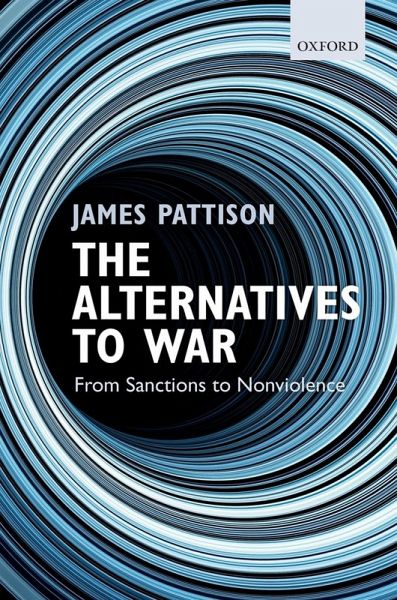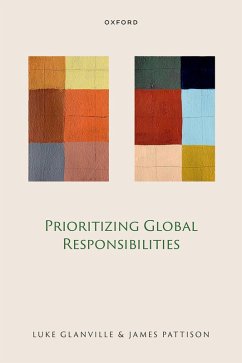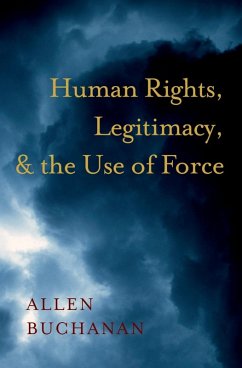
The Alternatives to War (eBook, ePUB)
From Sanctions to Nonviolence
Versandkostenfrei!
Sofort per Download lieferbar
39,95 €
inkl. MwSt.
Weitere Ausgaben:

PAYBACK Punkte
20 °P sammeln!
If states are not to go to war, what should they do instead? In The Alternatives to War, James Pattison considers the case for the alternatives to military action to address mass atrocities and aggression. The volume examines the normative issues raised by measures ranging from comprehensive economic sanctions, diplomacy, and positive incentives, to criminal prosecutions, nonviolent resistance, accepting refugees, and arming rebels. For instance, given the indiscriminateness of many sanctions regimes, are sanctions any better than war? Should states avoid 'megaphone diplomacy' and adopt more ...
If states are not to go to war, what should they do instead? In The Alternatives to War, James Pattison considers the case for the alternatives to military action to address mass atrocities and aggression. The volume examines the normative issues raised by measures ranging from comprehensive economic sanctions, diplomacy, and positive incentives, to criminal prosecutions, nonviolent resistance, accepting refugees, and arming rebels. For instance, given the indiscriminateness of many sanctions regimes, are sanctions any better than war? Should states avoid 'megaphone diplomacy' and adopt more subtle measures? What, if anything, can nonviolent methods such as civilian defence and civilian peacekeeping do in the face of a ruthless opponent? Is it a serious concern that positive incentives can appear to reward aggressors? Overall, Pattison provides a comprehensive account of the ethics of the alternatives to war. In doing so, he argues that the case for war is weaker and the case for many of the alternatives is stronger than commonly thought. The upshot is that, when reacting to mass atrocities and aggression, states are generally required to pursue the alternatives to war rather than military action. The volume concludes that this has significant implications for pacifism, just war theory, and the responsibility to protect doctrine.
Dieser Download kann aus rechtlichen Gründen nur mit Rechnungsadresse in A, B, BG, CY, CZ, D, DK, EW, E, FIN, F, GR, HR, H, IRL, I, LT, L, LR, M, NL, PL, P, R, S, SLO, SK ausgeliefert werden.













